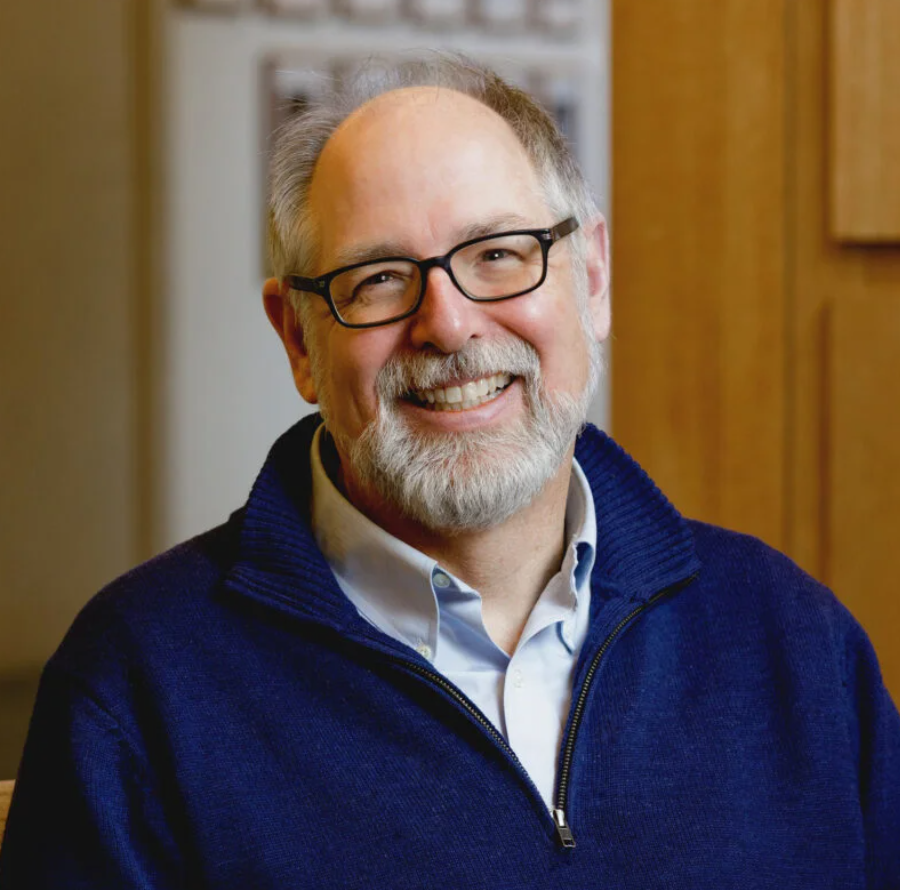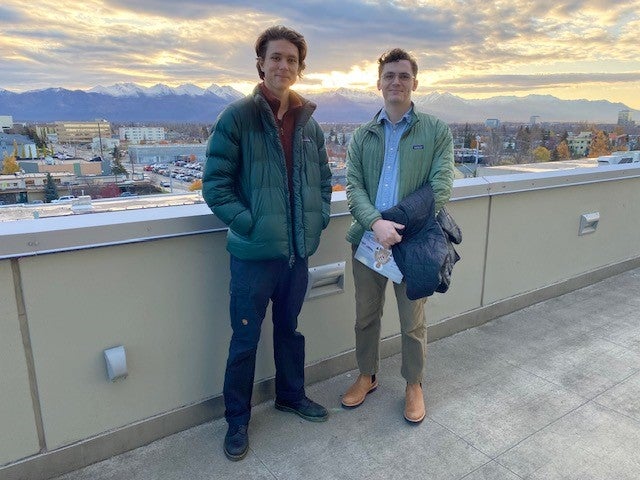
Andrew Mergen, assistant clinical professor of law and director of the Emmett Environmental Law and Policy Clinic, joined the clinic in January 2023 after over three decades in government. After spending his career at the Department of Justice in the appellate section, Mergen was ready to take on an exciting new challenge: teaching and mentoring the next generation of environmental lawyers. Education has long been a part of Mergen’s life, having taught environmental law and related courses at several law schools as a visiting professor.
“I was looking for what I could do with the next part of my career. And I thought that working with students and helping the next generation of environmental lawyers get on their feet and launched would be a good thing for me to do. And that’s what brought me to Harvard,” Mergen explains.
“For me, being a clinician is sort of wild, because it’s a law practice with student lawyers. And that presents some challenges in terms of finding the right match between students and projects and figuring out how to best supervise and provide feedback and manage the expectations of both the students and the clients. It can be a challenge,” he says.
The Environmental Law and Policy Clinic takes on projects at all levels, from Supreme Court litigation to assisting local communities. When Mergen joined in January 2023, he maintained several existing clinic projects while also developing new partnerships and areas of focus.
For example, the clinic is filing an amicus brief in the Federal Circuit on a novel 5th Amendment takings claim related to water rights. Students are also drafting a white paper for the Alaska Federation of Natives and had the opportunity to meet with the client on a recent trip to Alaska. Other current projects address hog farming in North Carolina and mining law reform.

This diversity of projects exposes students to the range of environmental law practice, from impact litigation to advising local community groups. Mergen aims to complement doctrinal classes with opportunities for students to build practical skills.
“If you’re studying administrative law, you learn a lot of doctrine and theory, but you may not have the opportunity to confront in-the-weeds issues regarding the administrative record. In multiple classes, you’re going to learn about standing. And in our clinic, you’re going to do a standing declaration with a client,” he explains.
The clinic has focused its seminar this semester on skill-building exercises that exemplify “how the rubber hits the road,” like interviewing clients and preparing standing declarations. The seminar is also about “building judgment,” Mergen says, to help students think through legal strategy.
“I think that’s really important because building judgment is the key of your experience as a lawyer. Getting a leg up on that seems like something the clinics can provide,” he argues.
Developing well-rounded lawyers also involves community partnerships and policy work beyond litigation. “When you’re working with communities, litigation is just one tool in a toolbox,” Mergen notes. The clinic’s externships with government agencies and environmental NGOs provide opportunities to experience a diversity of approaches to environmental law work.
For example, the clinic has an extern placed with the National Marine Fisheries Service office in Gloucester. “Fisheries have been key to New England forever,” says Mergen. “And they’re still key. We have a student who can spend a day a week in that office learning about the incredible work that they do.” Other clinical externship placements this semester include the Clean Air Task Force, the Council of Environmental Quality, and the Commonwealth’s Environmental Protection Bureau..
Looking forward, Mergen sees climate change, administrative law instability, and environmental justice as three of the biggest issues facing environmental law today.
“The climate catastrophe drives a ton of things,” he says. “There’s no such thing as environmental and natural resources law apart from climate. Now, I think everything that we do has a climate component. And that is different from when I started in environmental law. It really has reset the field in a big way.”
Meanwhile, the Supreme Court’s recent decisions have created a tension in administrative law that brings new challenges to environmental work. “There are parts of the court that seem intent on dismantling the administrative state and hamstringing in some ways the government’s ability to accomplish big goals,” Mergen notes.
Environmental justice issues are also increasingly prominent, as climate change response risks further burdening impacted communities if not addressed thoughtfully. While some members of the environmental justice movement are hasty to fully transition to electric energy as soon as possible, others wish to press pause to ensure changes are made with the most vulnerable communities in mind; Mergen says these intersecting arguments are frequently on his mind.
The clinic incorporates these cross-cutting issues while maintaining its legacy strengths in local partnerships and indigenous law. Mergen hopes to provide students hands-on opportunities to develop their skills and judgment, preparing them to pursue careers in environmental law during a transformative time for the field.
“People choose what kind of work that they want to do, and all sorts of work makes a difference. In my age, I’ve become super interested in birds. And I see that our environment is resilient in many ways, and you can do small things to create cleaner water, preserve habitats for animals, and so on. And we shouldn’t be myopic, we should be looking around at all sorts of opportunities,” he muses.
Ultimately, Mergen aims for students to leave the clinic experience feeling “better equipped to pursue a legal career as a result of the experience.” With his guidance, the next generation lawyers will be prepared to tackle the monumental environmental challenges ahead.
Filed in: Clinical Spotlight
Contact Office of Clinical and Pro Bono Programs
Website:
hls.harvard.edu/clinics
Email:
clinical@law.harvard.edu